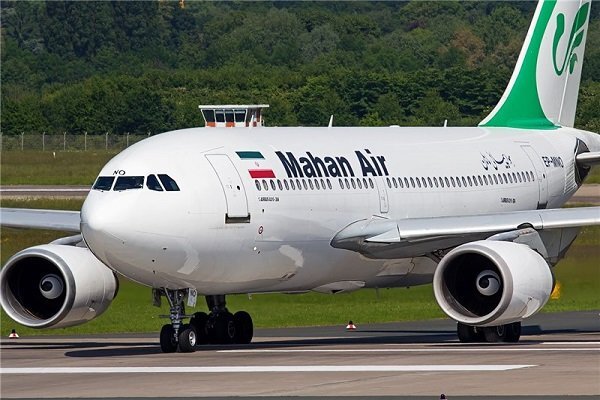Europe sanctions Iranian airlines, officials over refuted claims of missile transfer to Russia

TEHRAN – Foreign ministers of the European Union have approved a fresh round of sanctions targeting seven Iranian individuals and seven entities, accusing Tehran of supplying ballistic missiles to Russia for use in the Ukraine conflict.
Among those hit by the sanctions are prominent Iranian airlines, officials linked to the country’s defense sector, and key military figures.
The sanctions list includes Iran's flagship airline, Iran Air, as well as Saha Airlines and Mahan Air, which have been accused of involvement in the alleged missile transfers.
High-ranking officials, such as Seyyed Hamzeh Ghalandari, Iran's Deputy Defense Minister, and key figures in the Quds Force of the Islamic Revolution Guards Corps (IRGC), were also named. Additionally, the Khatam al-Anbiya Central Headquarters and the IRGC Aerospace Force are subject to the sanctions.
The EU’s measures also target the managing directors of the Iran Aircraft Manufacturing Industrial Company (HESA) and the Aerospace Industries Organization (AIO), both key players in Iran’s defense industry.
The sanctions come amid ongoing claims by Western nations that Iran has been supplying Russia with ballistic missiles, which Tehran has consistently denied. President Masoud Pezeshkian emphasized last month that Iran has never provided Russia with ballistic missiles, calling for an end to the military conflict between Russia and Ukraine. During a meeting with European Council President Charles Michel at the UN General Assembly in September, Pezeshkian reaffirmed Iran’s position, insisting Tehran seeks peace, not escalation.
Iranian Foreign Minister Abbas Araqchi also strongly rejected the allegations. In a statement on social media on September 11, he dismissed the claims as being based on "faulty intelligence and flawed logic." He added that Iran has not delivered ballistic missiles to Russia and questioned the effectiveness of sanctions, calling them part of the problem rather than the solution.
Iran and Russia, both subject to Western sanctions, have maintained a close partnership in recent years. Military cooperation between the two countries dates back to at least 2015, when Iran acquired the Russian-made S-300 anti-missile system. Despite facing sanctions, Iran has continued to enhance its military capabilities, including missile and drone technology, which it insists are purely for defensive purposes and non-negotiable.
Meanwhile, Russia has repeatedly criticized the supply of Western weapons to Ukraine, warning that it only serves to extend the conflict. Since the outbreak of the war, the United States alone has provided more than $44 billion in military aid to Ukraine, with no signs of the conflict abating.
The United Kingdom also announced new sanctions against Iran on Monday. The move was reportedly done in support of the Zionist regime.
